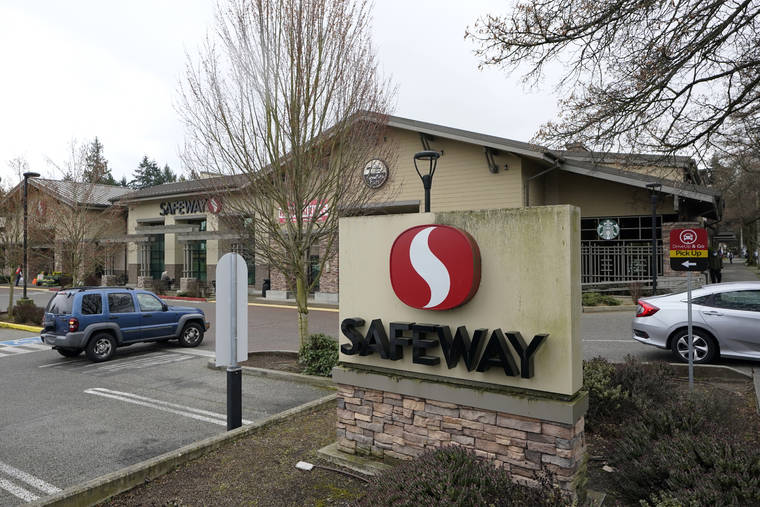SEATTLE — A federal judge on Thursday dismissed an industry lawsuit that sought to block a $4-an-hour pay boost for Seattle grocery workers amid the COVID-19 pandemic.
U.S. District Judge John C. Coughenour issued the ruling after hearing oral arguments earlier in the day.
“This is a big win for grocery store employees who have been critical and vulnerable frontline workers since the start of the pandemic,” City Attorney Pete Holmes said in an emailed statement.
The Seattle City Council in January approved the pay boost for workers at large grocery companies — those with more than 500 employees — to remain in effect as long as the city has a declared civil emergency related to the pandemic.
Assistant City Attorney Jeremiah Miller told the judge the hazard pay was justified by the fact that the employees work among members of the public and are at higher risk of contracting the virus, and that some grocery companies have made record profits during the pandemic.
“You’re looking at a population of low-wage workers who are uniquely vulnerable in some ways to the COVID-19 pandemic,” Miller said. “You’re talking about people who use public transportation, who live in more crowded conditions, who are more likely to have to take care of sick relatives. … One way to address that impact is to pay them more.”
The judge rejected arguments by the Northwest Grocery Association and the Washington Food Industry Association that the pay increase interfered with collective bargaining and discriminated against large grocery stores.
The industry groups said they plan to appeal. They warned that some stores would be unable to absorb the increased labor costs, especially independent stores or those like Grocery Outlet that serve lower-income populations and operate on smaller margins.
“They are doing everything they can to stay competitive during this pandemic,” Tammie Hetrick, president of the Washington Food Industry Association, said in an emailed statement. “The increased safety costs, coupled with arbitrary pay mandates for an unspecified time, are deeply concerning in terms of competitiveness and the ability to operate.”
Industry attorney William Tarantino told the judge that surveys suggested grocery stores were not more likely than other workplaces to be tied to COVID outbreaks. Nor does increased pay mitigate the risk posed by the virus, he said.
“There’s no hazard that is unique to these workers,” Tarantino said.
A federal judge in California last month similarly upheld a decision by the city of Long Beach to impose a $4-an-hour hazard pay requirement for grocery workers there. Several other California cities have also adopted hazard pay for grocery workers, as has the Seattle suburb of Burien, which adopted a $5-an-hour bonus.
In response to the Seattle City Council’s action, Trader Joe’s increased its hazard pay nationwide to $4 an hour. PCC Community Markets, a grocery cooperative with 15 stores in the Puget Sound region, initially urged Seattle Mayor Jenny Durkan to veto the measure, but eventually reached agreement with the United Food and Commercial Workers Local 21, which represents grocery workers, to institute the hazard pay.


